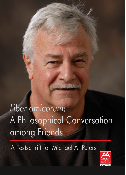Michael A. Peters’ Discursive Universalism
Michael A. Peters’ Discursive Universalism
Author(s): Marianna Papastephanou
Subject(s): Philosophy, Structuralism and Post-Structuralism, Identity of Collectives
Published by: Addleton Academic Publishers
Keywords: Michael A. Peters; universalism; discursive universalism; poststructuralism; Eurocentrism; pluralism;
Summary/Abstract: Attributing to Michael Peters a discursive universalism, and doing so in the very title of an essay in a Festschrift, comes as a surprise. It may even have a shock effect. For, any reader, even slightly familiar with Michael’s prolific and ongoing interventions in philosophy and in educational theory, will immediately feel that there is something odd in associating with universalism a thinker typically understood as a postmodern and poststructuralist philosopher/educator. Among Michael’s inexhaustibly energetic, highly influential, and paradigm-shifting philosophical-educational contributions his thoughtful elaboration on postmodern criticisms of universalist optics surely stands out. Now, if one adds to all this what I would call Michael’s ‘paganism’ in the Lyotardian (1977) sense, and his commitment to pluralism and particularism, declaring Michael a universalist (albeit of a discursive kind) may sound not just odd but even contradictory.
Book: Liber amicorum: A Philosophical Conversation among Friends - A Festschrift for Michael A. Peters
- Page Range: 149-158
- Page Count: 10
- Publication Year: 2014
- Language: English
- Content File-PDF

